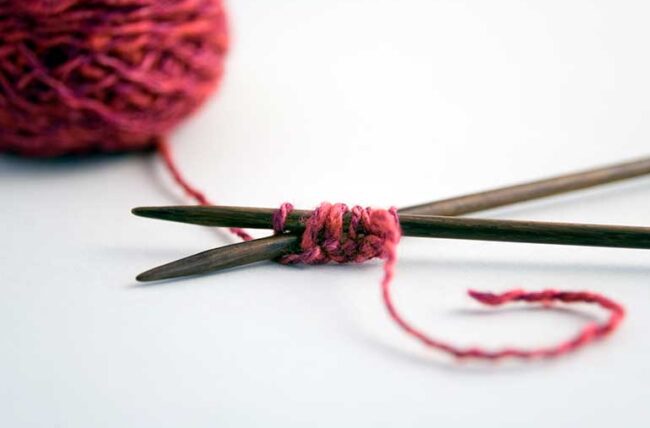The ups and the downs in a relationship are often a complex and messy process. We all experience love in different ways. Many of us experience a honeymoon stage which later causes us to question whether the relationship is working out as we would like. It’s sometimes easy to view some problems as landmines. Sometimes, we notice tiny red flags before they become real problems.
Karen Salerno MSSA, LISWS , a social worker, explains that red flags can be troubling as they may indicate larger issues. Domestic violence is not just physical abuse. It can include emotional, financial, and/or sexual abuse.
Salerno says that it can be hard to break the power-and-control dynamic of domestic violence. It’s important to understand that abuse is not your responsibility, even if you partner makes you feel as if it is.
Salerno offers tips for identifying relationship red flags as early as possible. She reviews red flags in various forms.
Are there red flags when it comes to a relationship?
According to the National Domestic Violence Hotline, In the United States more than 12,000,000 people experience abuse each year. These incidents can occur without warning and sometimes suddenly. In many cases, red flags are present that can indicate a problem long before it becomes dangerous or physical.
Salerno says that to identify red flags it is important to be aware of any issues as they occur. Red flags do not occur in a vacuum. Red flags are more likely to appear at the same moment. It is important to pay attention to the cycle of behavior.
Salerno says that there will be a pattern. “There’s usually not one isolated incident.” “There will be many things that arise.”
Red flags like physical abuse may be visible on the surface. There are also red flags that may be silent, such as when someone texts you constantly or showers you with gifts. These red flags start out subtly, but then they evolve.
Salerno says that a subtler example could lead to more issues, such as if you are told that you look great in a dress. “Maybe it will morph into someone telling you, “I don’t really like that shirt you’re wearing.” Then it may turn into a person telling what you should and shouldn’t wear.
To be able to identify potential red flags, you need to know what healthy relationships are like.
How does a healthy relation look?
All healthy relationships are based on core values, which include:
- Respect for each other is essential.
- Communication without fear of reprisal.
- Honesty, accountability and transparency.
- Trust and support.
- Fair negotiation.
It is important to negotiate fairly. How do you deal with difficult situations or disagreements between you and the partner? You must be able to express your feelings and listen to the needs of each other without slandering them. Will you make compromises that are healthy without compromising your values? Do you argue when things get tough and your needs are not taken seriously?
Salerno says that someone who doesn’t play fair is a red flag. They set the rules, and there is no room for negotiation. In a healthy relationship you always talk about compromises and find solutions to conflicts together.
Early warning signs of a relationship
It is crucial to know what warning signs you should look out for in the early stages of a relationship. You’ll begin to notice patterns in behavior as red flags appear more frequently over time.
Salerno says that abuse tends to repeat itself. In the first phase tension is built up and the victim may feel as if they’re “walking on eggs”. The abuse then occurs in the second phase. The abuser might apologize in the third phase and everything may seem fine, until the cycle begins again.
Abuse can take many forms. Here are some red-flags to be aware of.
They attempt to influence you by apparent affection or love-bombing
Early on in a relationship, if they show you an excessive amount of affection, gifts, and compliments, it could be a sign of trouble. It seems wonderful at first — who wouldn’t like a lot affection and gifts from their partner? Everything has a cost.
Salerno says that love bombing occurs when someone moves too fast. “They want to be with me all the time.” You’re receiving extravagant gifts that are out of proportion with the situation. You’ve been on two dates, but they want you to marry them or move in with them.
These behaviors may be a red flag, as the relationship moves so fast that neither person has a chance of getting to know the other. You’re being bombarded with information to gain control and power over you and your relationship. Love Bombing can drive a relationship but it can also result in a disbalanced one when it ends.
They speak about their exs with disrespect
The way a person speaks about their ex-partners can reveal a great deal about them. Many of us may feel hurt by their behavior. If they seem to be only interested in one side of the story, or call their ex-partners “crazy,” it may indicate that things did not end well.
Salerno says that they may always ask about their previous partners, and compare them. Or they will blame the other person for their past relationship failures. You may notice a pattern if they are constantly criticizing their ex-partner or blaming him/her for certain things.
Their anger makes you feel unsafe
Domestic violence does not always begin with physical abuse. This is a big red flag if your partner’s anger makes you feel uncomfortable. Anger can be a problem when it occurs frequently and suddenly, or if they threaten violence.
In a healthy, loving relationship, people can get angry but they won’t take it out on each other. Salerno emphasizes that they won’t physically harm you or threaten to do so. “If you’re afraid of someone or their anger, then I think that is something to pay attention to.”
They push your physical limits
It can be a red flag that is obvious, but there are also some hidden tendencies. When your partner makes you do something you don’t want or find uncomfortable, they are pushing your boundaries. This can also occur on a smaller level. You may not be in the mood for cuddling, or you might not like to be tickled. Or you might just want some space. When someone refuses to listen to what you feel, it crosses the personal line.
Everyone has a different way of defining and establishing boundaries. Salerno notes that it may not be obvious to someone. In a healthy relationship someone will respect you. “If you say ‘I do not like that’, ‘I am uncomfortable’, or ‘I feel sick,’ someone who respects and loves you will respect your boundaries.”
They isolate You
A major red flag for victims of domestic abuse is when their partner isolates them from the outside world. They may be hesitant to spend time with your family and friends, or jealous if you do. They may demand so much time and energy from you that it’s difficult for you to spend time with your family and friends.
Salerno says that in a relationship, where one person is trying to gain power and control over the other individual, they will isolate that person by controlling them and isolating them to prevent their interaction with others. “The smaller the world you live in, the greater the impact of the abuser on your life.”
They Gaslight You
This form of emotionally abusive occurs when your partner asks you to question what you have said or done in order to place blame or guilt. It’s to make you blame yourself for something that isn’t your fault. Your partner might say that you ruin an evening or event because you expressed your anger about something.
Salerno says that gaslighting is a way to try and undermine someone’s perception of reality. It’s just another way someone is trying to control you by setting rules.
They don’t respect your personal space
Is your partner being clingy? Does your partner expect you to spend time with them every week, even if it conflicts with your work, hobbies or other plans? You may have a problem if you feel stretched thin trying to satisfy your partner’s demands and they don’t respect your need for personal space and downtime.
Salerno says that if you say, “I’m uncomfortable with this,” and your partner ignores it, then this is an indication of a bad relationship. Someone might initially feel flattered that their partner wants to be with them for so much time. This could be a warning sign if you feel someone is trying hard to control your schedule and isolate you.
They require constant reassurance
This is a very difficult red flag. Your partner may need extra support if they have unresolved traumatic, or baggage from previous relationships. It’s not a problem if they go to therapy, express their needs without imposing on yours and respect your boundaries. You should not be the one to save your partner from every situation.
Salerno says that “love bombing” is a common occurrence.
Red flags on social media
They aren’t just limited to face-to-face encounters. These red flags can also occur in long-distance relationship and on social media. Our social media accounts can be seen as extensions of us.
Salerno says that as social media continues to grow, people are more likely to be victims of digital abuse.
These are some red flags on social media that you should be aware of.
They expect a response immediately to every text they send
Communication is essential in every relationship. But if you feel it’s being forced, or it interferes with other aspects of your life, it may be time to address this issue.
Salerno says that if someone texts you constantly, it means they are desperate to communicate with you. “A lot of times, those questions about control and power come along with it, like ‘Where are we?’, ‘Who are we with?’, and ‘When will you be home?’
Set healthy expectations and boundaries to avoid this. To avoid falling into this trap, talk to your partner about what you expect from text messages.
This is what they do to your social media accounts
Are they constantly asking you where you are? Do they insist that you tell them where you are (even if it makes you uncomfortable to do so)? It may seem like an overprotective attitude. It doesn’t matter if it stems from a lack in self-esteem, or anything else. Any disregard for privacy is a bad way to establish control.
Salerno says that if someone constantly asks you for your passwords, or if you show your phone to them so they can see your social media posts and texts, then they are not respecting your privacy.
They force you to engage in sexual activity without consent
Any relationship is incomplete without checking in on your partner. Take a step back if your partner insists on you sharing photos, videos, or any other content that you are uncomfortable with. Never feel pressured into participating in an activity that you are not comfortable doing.
They want you to delete all your social media accounts
Salerno explains that this is a tactic to isolate you. If your social media account is a primary means of communication, and someone asks you to delete them all, it may be an attempt to control you. People won’t know if you are safe or where you are if your social media accounts are deleted.
They make your private worries public
You can crowdsource certain things about your relationship on the internet, but not others. It’s okay to put a poll in your social media feed about where to find a particular type of food, for instance, to settle a dispute with your partner. It’s not okay to post a negative comment about yourself or make you feel bad.
Salerno says that if someone makes your private concerns or arguments public to embarrass, denigrate, or control you, it’s a warning sign.
When red flags turn into domestic abuse
Salerno says that domestic violence is a pattern of behavior in which someone tries to gain control and power over another person. When you see a pattern in warning signs of abusive relationships, you should be very concerned.
Non-physical signs of domestic abuse include:
- Stopping you from obtaining and/or maintaining a job.
- You can either give you a salary increase or reduce your allowance.
- You must account for all your expenditure.
- You being put down, criticized or called names in public.
- Refusing or stopping you from using birth protection/control.
- You can sabotage your efforts to prevent pregnancy by destroying condoms (for example, by making holes in them).
Salerno says that it could be name calling, physical abuse sexual abuse or financial abuse. If you notice yourself doing things you don’t like, but are doing them to keep your partner calm and angry, then you should pay attention.
When to seek help
Know that you can get help if your partner exhibits any of these behaviors. Plan your exit carefully for your safety. Salerno says that only you can determine when it is safe to leave.
You should also be aware when your family or friends may be in a similar situation.
Salerno says, “If you are aware of someone experiencing domestic violence and you want to help them, you should listen and show that you care.” You don’t want them to be blamed. “You want to tell them that they are not at fault for what is happening.”
Salerno suggests that you take these safety measures:
- Call the National Domestic Violence Hotline on 800.799.7233.
- Tell your loved ones to call the cops if they don’t hear from you by a specific time.
- Create a codeword with your children or family members to encourage them to dial 911.
- Keep important documents (birth certificates, social security cards, etc.) Keep important documents (birth certificates, social security cards, etc.) in a secure place in case of an emergency.
- If you suspect that someone is watching your tech, use a device the other person does not have access to.
- Change your password and username using a different device. Create new accounts and use non-identifying usernames.
There is light at the other end of the tunnel.
Salerno encourages people who are in abusive relationships that there is help and hope. You can lead a healthy and happy life free from domestic violence.





















